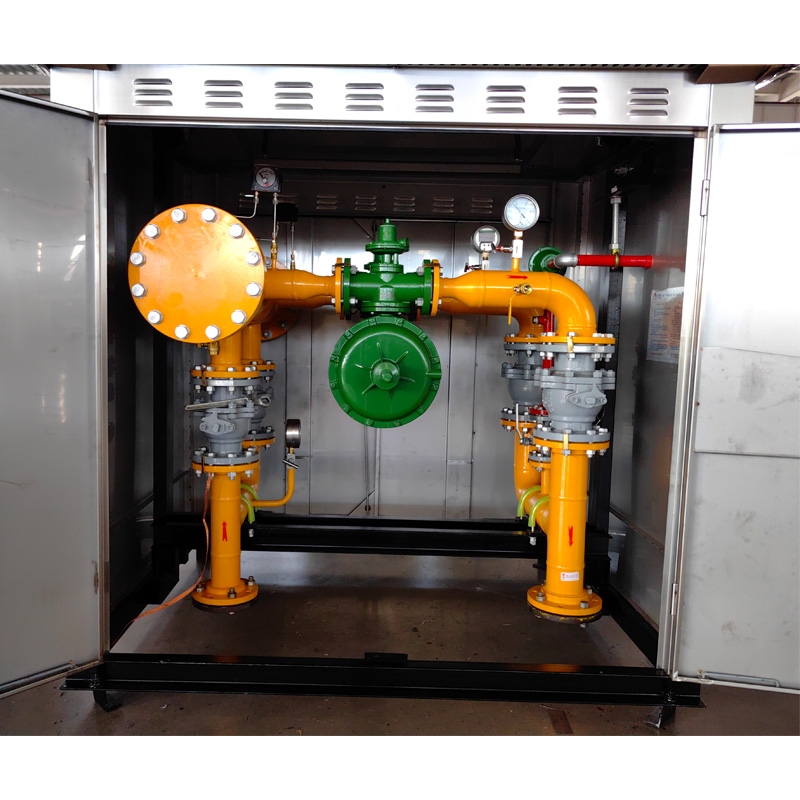
Nov . 14, 2024 23:07
Back to list
cyclone separator
Understanding Cyclone Separators A Key Component in Industrial Processes
Cyclone separators play a vital role in various industrial processes, serving as essential devices for removing particulate matter from gases and liquids. Their efficiency and simplicity make them a preferred choice in many applications, from mining to chemical processing, and even in air pollution control systems. This article delves into the workings of cyclone separators, their advantages, applications, and maintenance considerations.
The Working Principle of Cyclone Separators
At the core of a cyclone separator's function is its design, which utilizes centrifugal force to separate particulates from a fluid stream. When a mixture of gas or liquid containing particulate matter enters the cyclone, it is forced into a circular path. This path causes the particulates, which are heavier than the fluid, to be thrown against the walls of the cyclone due to centrifugal acceleration.
As the gas or liquid flows spirally down the cyclone, the particles lose momentum and settle downwards due to gravity. As they reach the bottom of the separator, they are collected in a hopper or a similar collection vessel. Meanwhile, the cleansed gas or liquid continues to move upwards, eventually exiting through an outlet at the top. The efficiency of this separation process can vary based on factors like the inlet velocity, the size and density of the particulates, and the overall geometry of the cyclone.
Advantages of Cyclone Separators
One of the primary advantages of cyclone separators is their low operational costs. Unlike filters or electrostatic precipitators, they have no moving parts, which minimizes maintenance requirements and enhances reliability. Additionally, cyclone separators can operate effectively over a wide range of flow rates and particulate sizes, making them versatile for various applications.
Another benefit is the ability to handle high temperatures and pressures, allowing them to be used in harsh industrial environments. They also have a relatively small footprint compared to other separation technologies, which can be a significant consideration in space-constrained facilities.
Moreover, cyclone separators are generally efficient in capturing larger particles, often exceeding 5 microns in size. Their performance, however, can be influenced by design modifications and operational parameters tailored to specific needs.
cyclone separator

Applications of Cyclone Separators
Cyclone separators find applications across numerous industries. In the mining sector, they are used to separate valuable minerals from waste rock. The power generation industry employs cyclone separators to remove ash and particulate matter from flue gases, ensuring compliance with environmental regulations. In the petrochemical field, they help in the separation of catalyst particles from gases during refining processes.
In the realm of air pollution control, cyclone separators serve as crucial components in industrial exhaust systems, helping to reduce the emission of fine particles into the atmosphere. Agriculture also benefits from cyclone separators in grain processing and seed cleaning operations.
Maintenance Considerations
While cyclone separators are robust and require minimal maintenance, it is still essential to perform regular inspections to ensure optimal performance. Checks should be carried out to look for signs of wear or damage to the cyclone walls and the outlet. Additionally, monitoring the operating parameters, such as pressure drop and flow rate, can help identify when cleaning or maintenance is necessary.
Periodic cleaning of the collected particulates from the hopper is also crucial to prevent blockages that can hinder the system's efficiency. Operators should follow the manufacturer’s recommendations for maintenance and cleaning schedules to extend the life of the separator and maintain its performance.
Conclusion
Cyclone separators are integral to many industrial processes, providing an efficient and cost-effective solution for particulate separation. Their operating principle leverages centrifugal forces to achieve significant separation capabilities, making them suitable for a variety of applications. With their low maintenance requirements and versatility, cyclone separators continue to be a backbone of industrial operations worldwide, contributing to improved productivity and environmental compliance. Understanding their design, advantages, and maintenance needs can help industries harness their full potential while ensuring sustainable practices.
Next:
Latest news
-
Safety Valve Spring-Loaded Design Overpressure ProtectionNewsJul.25,2025
-
Precision Voltage Regulator AC5 Accuracy Grade PerformanceNewsJul.25,2025
-
Natural Gas Pressure Regulating Skid Industrial Pipeline ApplicationsNewsJul.25,2025
-
Natural Gas Filter Stainless Steel Mesh Element DesignNewsJul.25,2025
-
Gas Pressure Regulator Valve Direct-Acting Spring-Loaded DesignNewsJul.25,2025
-
Decompression Equipment Multi-Stage Heat Exchange System DesignNewsJul.25,2025

